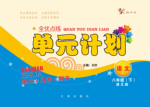题目内容
The ties are good in both quality and style; she knows that ________ she chooses will match her husband.
[ ]

 全优点练单元计划系列答案
全优点练单元计划系列答案The invention of the electric telegraph gave birth to the communications industry.Although Samuel B.Morse succeeded in making the invention useful in 1837,it was not until 1843 that the first important telegraph line was constructed.By 1860 more than 50,000 miles of lines connected people east of the Rockies.The following year,San Francisco was added to the network.
The national telegraph network strengthened the ties between East and West and contributed to the rapid expansion of the railroads by providing an efficient means to monitor schedules and routes.Furthermore,the extension of the telegraph,combined with the invention of the steam-driven rotary printing press by Richard
M.Hoe in 1846,revolutionized the world of journalism.Where the business of news gathering had been dependent upon the mail and on hand-operated presses,the telegraph expanded the amount of information a newspaper could supply and allowed for more timely reporting.The creating of the Associated Press as a central wire service in 1846 marked the arrival of a new era (纪元) in journalism.
【小题1】The main topic of the passage is ________.
| A.the history of journalism |
| B.the origin of the national telegraph |
| C.how the telegraph network contributed to the expansion of railroads |
| D.the contributions and development of the telegraph network |
| A.U.S. history book | B.book on trains |
| C.science textbook | D.computer magazine |
| A.Samuel Morse did not make a significant contribution to the communications industry |
| B.Morse’s invention did not immediately achieve its full potential (潜力) |
| C.the extension of the telegraph was more important than its invention |
| D.journalists have the Associated Press to thank for the birth of the communications industry |